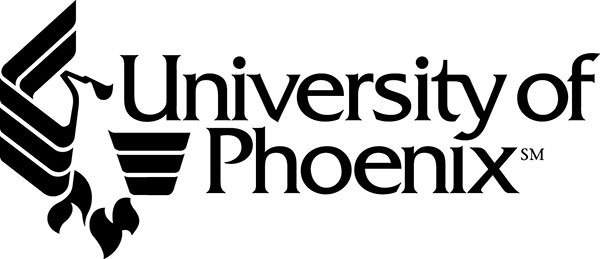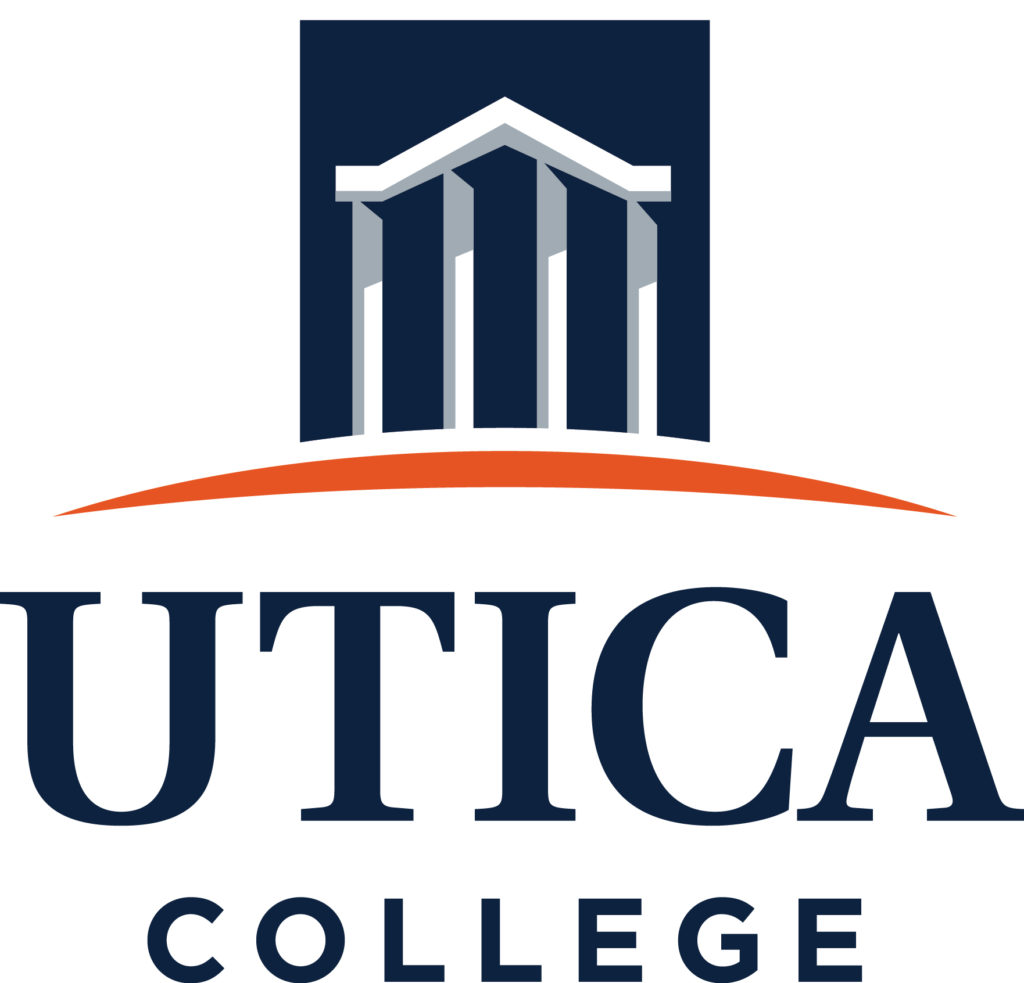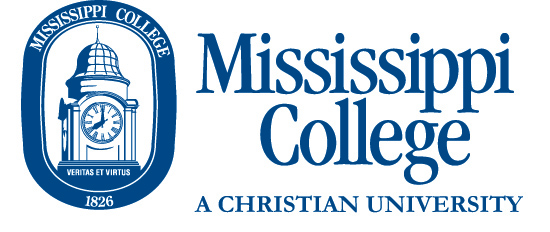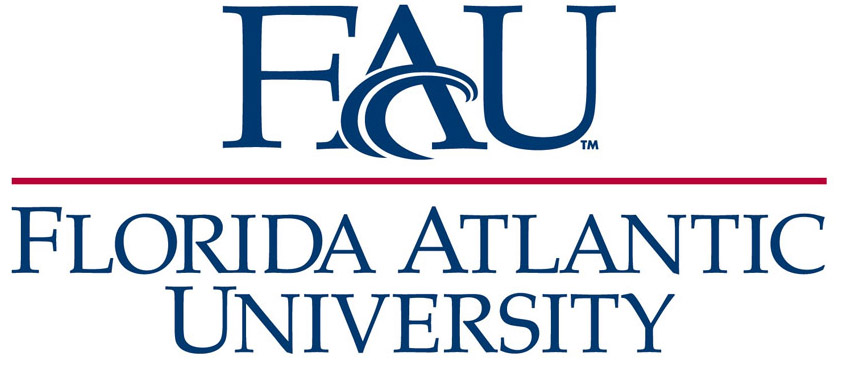Find Your Perfect School
Law and Order, CSI: Crime Scene Investigation, Criminal Minds, and True Detective have enjoyed huge popularity because of our society’s collective fascination for crime, both true and fictional. Of course, the personal motivations for pursuing a bachelor’s in criminal justice and legal studies will differ among students!
It’s safe to assume that the criminal justice field is a combination of a keen interest in solving crimes, a fascination for criminal psychology, and a realization of its value as a rewarding career.
Quick Summarization:
Do you desire a career in the legal system, perhaps focused on Criminal Justice? If so, a Bachelor’s of Criminal Justice major is for you! But which legal degree fits your personality and career aspirations? As you work to solve crimes, you will learn about criminal psychology, the legal process, and all about laws and ethics, plus much more! This rewarding career is awaiting you today!
CRIMINAL JUSTICE DEFINED
The term “criminal justice” refers to the systems, including the laws, organizations, and people that strive to achieve accountability for crimes committed by criminals. Their mission also includes restorative justice, particularly restoring physical, mental, and emotional losses experienced by the victims.
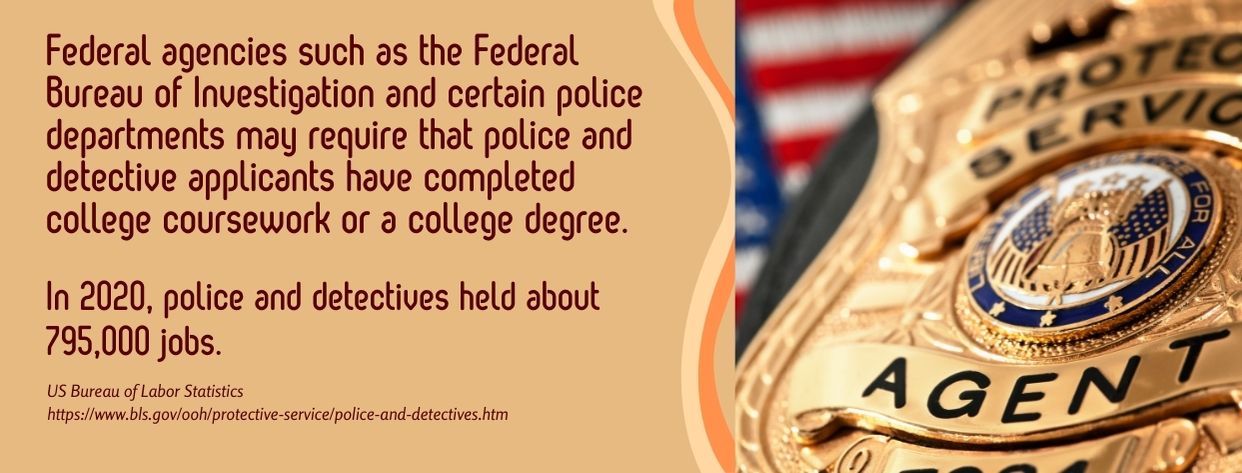
LEGAL STUDIES vs. PARALEGAL STUDIES
Legal studies and paralegal studies are two of the most popular bachelor’s degrees in the law profession. Both involve the completion of at least 120 credit hours. Students can earn either of these degrees between two and six years depending on their enrollment status – part-time or full-time, freshman or transfer student.
While these sound similar, these are different areas of study. Legal studies is an umbrella term, while paralegal studies is a specific area. Legal studies are interdisciplinary programs that involve the study of laws and their workings in both the theoretical and practical aspects.
The coursework includes political science, sociology, history, economics, philosophy, and international relations – proof, indeed, of its interdisciplinary nature. These programs have wide variations, from certificates for legal assistantships to law schools for aspiring lawyers.
Paralegal studies study the law’s auxiliary aspects of lawyers’ legal tasks to professionals with proper training. Paralegals are individuals with formal education and training who work for lawyers in law firms, legal divisions, and other organizations.
Both legal studies and paralegal studies are offered as a BS or BA. BS programs emphasize the science, technology, and data-driven factors used in legal settings. BA programs focus on the theories of law and social justice. Both types, however, typically include internship and fieldwork as graduation requirements.
Career options for individuals with a bachelor’s degree in legal studies or paralegal studies include:
- Legal assistants
- Paralegals
- Conciliators, mediators, and arbitrators
- Assistants to legislators
Specializations may also be offered in some legal studies and paralegal studies programs. These include law enforcement, criminology, and criminal justice. But there are also standalone legal studies and paralegal studies programs without specializations.
Online programs in criminal justice and legal studies, including their specializations, are becoming more popular because of their convenience. Their curricula, faculty members, and academic requirements are the same as their on-campus counterparts, but their flexible schedules and affordable costs make them more attractive. This applies to non-traditional students, including working professionals and adult learners.
Methodology
If becoming part of a legal team, and working for or contributing to the legal system is of interest to you, earning an online Bachelor’s in Criminal Justice can help you get a foot in the door! To earn the degree and excel academically, take a look at these online colleges that are considered the most outstanding of the bunch, owing to their Online BS in Criminal Justice program features:
- Offered in either 100% online distance learning classes or blended format, making it an efficient choice for working adults,
- Prepares undergraduates for a wide range of careers in the legal arena, with rigorous coursework that emphasizes the many facets of the law as a discipline as well as ethical legal practice,
- Develops students’ teamwork, communication skills, critical thinking, and problem-solving abilities that are needed in the professions associated with Criminal Justice,
- Promotes teamwork and collaborations with others in a Criminal Justice Bachelor program, fostering creativity and imagination, media communication laws and ethics,
- Features an easy-to-use Learning Management System with 24/7 access to technical assistance,
- Facilitated by a panel of well-credentialed Legal Studies instructors, most of whom are in the practice and hold terminal degrees,
- Offers Federal Financial Aid programs to assist qualified online undergraduate students in funding their education,
- Provides ease of credit transfers,
- Features Student Help programs to help learners excel in their undergraduate studies in Criminal Justice or navigate their options in the field upon graduation,
- Meets the proper accreditation requirements to prove adherence to online teaching standards,
- Affiliated with the legal community, and well-regarded in the legal circle.
See our Methodology page for more details.
Indeed, it’s never too late to earn your degree in criminal justice and legal studies! Below are the best online bachelor’s programs that are worthy of your consideration.
BEST BACHELOR’S IN CRIMINAL JUSTICE AND LEGAL ONLINE SCHOOLS AND CAREER GUIDE
CORRECTIONS
Did you know that the US correctional system has the highest number of people incarcerated per capita in the world? For every 100,000 people, 655 are incarcerated, and skilled professionals must provide them with services. These include supervision, rehabilitation and advocacy, and enforcement, which are jobs suited for professionals with a Bachelor’s in Corrections.
Correctional officers, parole and probation officers, and correctional treatment specialists are the possible career paths. Many also choose police academy training for career advancements, such as supervisory positions in police departments, jails, and correctional facilities. The median annual wage for entry-level positions is $59,860, but it can be as high as $63,380 for local government workers.
Some of these jobs can result in stress overload due to the disturbing nature of the crimes, extensive paperwork and travel, and distressing situations. But most of these jobs also have their fair share of rewards, such as making a difference in communities and families affected by crime.
Most Bachelor’s in Corrections programs require at least 120 credits and four years of completion on full-time study. Transferred credits can shorten the study time by nearly half or two years, and many programs even allow credits for relevant work experience. Accelerated programs are completed in 18 months, but the intense study demands aren’t for everybody.
Eastern Kentucky University
Richmond, Kentucky
: 859-622-4455
BS in Corrections and Juvenile Justice Studies
Free online tutoring and career services assistance 100% online programs require completion of 120 credits hours, of which 42 are upper-division credits, for graduation. Students transfer up to 90 credit hours, meaning 30 credit hours must be completed at EKU. The 90 credit hours may be from a related associate degree, Advanced Placement (AP) courses, and DOCJT training (9 credit hours).
It’s among the more affordable programs, too. Active duty military personnel receive a significant discount on their tuition while other students can apply for financial aid. As a public university, its students are eligible for FAFSA, too, so tuition becomes less of a burden.
EKU’s program emphasizes community-based offender rehabilitation programs with a real-world approach. The accelerated 8-week terms and six start dates make it easy for working professionals to earn their degrees at their own pace. There’s no application fee, and the textbooks are free, aside from the personal advisors who guide you from application to graduation.
Students can also choose a minor in psychology, social intelligence and leadership, and criminal justice. Undergraduate certificates for further specialization are also offered, and these include youth services and correctional intervention strategies.
University of Phoenix
Phoenix, Arizona
: 844-937-8679
BS in Correctional Program Support Services
The 120-credit hour program has an average completion time of four years for full-time students. But students can also transfer their eligible college credits, such as from an associate degree or AP courses. Credits will also be given for Basic Corrections Academy and Peace Officer Standards and Training (POST) training.
UoPX may be a private, for-profit university, but it has affordable tuition of under $400 per credit, and its generous scholarships are available for all students. Up to 90 credit hours are transferrable. Qualified students can then earn the degree in 12 months aside from saving on their tuition costs.
Students also save money due to the university’s Tuition Guarantee, where a flat rate is imposed from the first term until graduation. SAT requirements and application fees aren’t required for application.
There’s only one course at a time so students can enjoy a good study-life balance and keep up with tuition. Every course lasts for five weeks, so every academic year means ten courses completed. These include Social Psychology and Criminal Behavior, Diversity and Special Populations, and Working with the Correctional Population.
Tiffin University
Tiffin, Ohio
: 800-968-6446
Bachelor of Criminal Justice Corrections
The 100% online program has a semester-based format with two terms for every semester. The six start dates are in January, March, May, July, August, and October.
From first-year students to transfer students, working professionals, and adult learners, all types of students are welcome to apply. Their common characteristic is a keen interest in working in the criminal justice and corrections system, perhaps making a difference in affected people’s lives.
The completion time varies depending on the number of credit hours transferred and the number of courses taken every semester. For transfer purposes, a minimum grade of “C” is required for the credits to be considered.
Students study the theory and practice related to legal history, management, current issues, and social work and counseling. The program strongly emphasizes the current standards in population management, offender reentry and motivation, and offender management. Faculty members emphasize the practical aspects of correction and, thus, provide their students with hands-on, first-hand experiences in correctional environments.
CRIME SCENE INVESTIGATION
The work of crime scene investigators has been highlighted in shows like CSI, and it’s part of the reason for the job’s popularity. The generous compensation also attracts individuals with a median annual wage of $49,056, but it can be as high as $80,000. Becoming a crime scene investigator starts with earning a relevant bachelor’s degree, the preferred qualification among employers.
The bachelor’s degree may be a standalone crime scene investigation or a specialization within another degree, such as criminal justice or criminology. There will be differences in curriculum between a standalone and a specialization degree, but both equip students with the skill sets for a career in crime scene investigation.
The common courses include:
- Human anatomy and physiology
- Crime scene photography
- Forensic science
- Criminal law
Electives are offered wherein students learn specialized skills like blood-spatter analysis and fingerprint analysis. Students must learn technical skills while developing their soft skills, such as communication, collaboration, and critical thinking skills. Most, if not all, online programs require students to undergo on-the-job training or internships to gain hands-on experience.
Liberty University
Lynchburg, Virginia
: 800-424-9595
BS in Criminal Justice – Crime Scene Investigation
Administered by the Helms School of Government, the program features convenient 8-week courses and eight start dates every year. Students complete 120 credit hours but can transfer up to 90 credits from previous college credits and military training, thus decreasing the 3.5-year average completion time.
E-books are provided for free, meaning substantial cost savings of up to $2,000 annually on textbooks. Tuition discounts for military personnel and scholars are also available.
Students gain vital skills in conducting on-site crime investigations, from processing crime scenes to collecting evidence within the bounds of the law. The coursework emphasizes practical skills backed by a solid foundation of theory, including Introduction to Forensics, Crime Scene Management, and Criminal Investigations. Students are encouraged to practice their future profession with excellence, integrity, and strength underlined by a Christian worldview.
This is a 100% online program without set log-in times so working professionals can earn their degrees at their own pace. But fieldwork and internships require compliance with time standards.
Admission is on a selective basis, with at least a 2.0 cumulative GPA to be considered. Official college transcripts are required, too.
Salem University
Salem, West Virginia
: 844-462-9128
BA in Criminal Justice – Concentration in Crime Scene Investigation
With a robust foundation in criminal justice, crime scene concentration equips students with the job’s theoretical knowledge and practical know-how. Students learn early on about the responsibilities of being part of a CSI team, including:
- Management of crime scenes, including their security from tampering
- Planning for strategy, including its communication and coordination
- Documentation of the crime scene from photographing to processing
- Collection, labeling, and storage of evidence
Students only take one course every month, so there’s a better study-life balance while ensuring students have the highest chance for academic success. Continuous enrollment allows students to start their education at any time instead of waiting for a specific term. There’s a capstone requirement for graduation.
The core courses include Criminal Law, Criminal Investigation and Forensics, and Criminal Evidence and Constitutional Procedure. Since crime scene investigators don’t just deal with inanimate evidence, the coursework includes Crisis Intervention and Ethics in Criminal Justice. Students develop their people skills, too, including compassion and communication skills.
Saint Leo University
St. Leo, Florida
: 800-334-5532
BA in Criminal Justice – Concentration in Criminalistics
The extensive coursework at Saint Leo results in well-prepared students ready for the challenging crime scene investigation work, including the grisly aspects. Forensic science, collection and preservation of evidence, including bodily fluids, courtroom testimony, and scientific writing, are in the curriculum. Students gain the skills, including the proper perspective in solving crimes.
Most faculty members have real-world experience as crime scene investigators, so students learn from textbooks and experts. Students also have several hands-on learning opportunities, including visits to state prisons and internships in forensics labs and law enforcement agencies.
Getting your police standard certificate is also possible via the Pasco-Hernando Police Academy. Salem has an Alpha Phi Sigma chapter, too, meaning students enjoy the perks of membership in the national society for criminal justice.
The FBI National Academy Associates has given its seal of approval to Salem’s program, too. As a Roman Catholic university, Saint Leo’s program encourages students to develop a steady moral consciousness with respect for the value of all people.
CRIMINAL JUSTICE
Students in online criminal justice programs understand the principles and practices behind the U.S. criminal justice system. The coursework covers its three main elements – policing, including law enforcement, the courts and their rules and regulations, and the corrections system. Criminal justice students also study criminology, including theory and psychology, criminal law, juvenile justice, and crime prevention.
There’s equal emphasis on liberal arts, social sciences, and practical applications related to criminal justice, as well as corrections-specific training. Internships, including fieldwork and capstone projects, are common aspects of criminal justice programs since hands-on experiences strengthen theoretical foundations.
The sites for an internship can be varied, too, from police departments to juvenile corrections facilities, even in private organizations involved in criminal justice advocacies.
Career options vary, including probation officers, corrections officers, court administrators, and criminal investigators. Many also become women’s and children’s counselors, county sheriff’s deputies, and corrections case managers.
Southern New Hampshire University
Manchester, New Hampshire
: 800-668-1249
SNHU makes it easier for working professionals and adult learners to earn their degree in criminal justice through its no application fee and no standardized test scores policy.
Previous college credits, law enforcement training (up to 12 credits), and credits from Pathways to Math Success assessments (up to 12 credits), are accepted. Students may also transfer up to 90 credits, or 75% of the 120 total credits required to earn the degree.
Students have a wide range of technology resources available, including cloud-based environments and 24/7 access to learning materials. There are also virtual events and clubs for criminal justice students.
SNHU designed the program for students to gain real-world skillsets in criminal justice, including criminology theories and issues, communication skills, and decision-making skills. Students choose from several concentrations:
- Criminology and Crime Analysis
- Corrections
- Homeland Security and Counterterrorism
- Security Management
- Police Administration and Operations
- Substance Abuse
- Human Services and Advocacy
This criminal justice program also includes a criminal justice communication certificate embedded in the curriculum.
Walden University
Minneapolis, Minnesota
: 800-925-3368
Walden is an NSA- and DHS-recognized National Center of Academic Excellence in Cyber Defense Education, and, thus, its criminal justice program is among the best. Scholar practitioners who are recognized experts developed the curriculum, with most faculty members also actively involved in the criminal justice profession.
The program’s forward-thinking approach means that students benefit from coursework that emphasizes present issues and emerging trends. Current practices in restorative justice, cybercrime, and policing are discussed in depth but with a robust foundation in their history.
Hands-on training via case studies, true-to-life scenarios, and virtual technologies is also provided.
Working professionals find the program attractive due to the two options for degree completion:
- The traditional course-based format where an instructor leads the class and students follow a predetermined schedule; and
- The Tempo Learning format where students have greater control over their pace of learning and, thus, the cost and length of their studies
Concentration options are Advanced Topics in Criminal Justice, Corrections and Human Services, Crime and Criminal Investigation, and Criminal Justice Management and Administration. Students may also prefer a self-designed program of study by choosing their concentration courses.
Maryville University
St. Louis, Missouri
: 888-266-0574
There are no entrance exams and application fees for aspiring criminal justice professionals at Maryville! Their 100% online criminal justice program has three fall, spring, and summer start dates and accepts credit transfers. The transferred credits are usually in general education, which can speed up your completion of academic requirements.
The coursework also covers core courses and elective courses in criminal justice and criminology and a series of social science research subjects. Criminology theory, police management, and criminal law and procedures are among the core courses, while the electives include criminal investigations, mental illness, and terrorism.
Students choose from two tracks:
- The project-based track where students attend seminar courses and become interns at social and protective service agencies; and
- The police academy training track where students develop their policing skill sets at selected academies
Maryville’s Early Access program provides students with the opportunity to earn up to 12 credits for their master’s degree. The credits are charged according to undergraduate rates, meaning cost savings on a graduate degree.
CRIMINOLOGY
The versatility with which a degree in criminology can be applied is among the foremost reasons for its enduring popularity! Aside from law enforcement careers, many individuals also enjoy successful careers in social and community services. Many also pursue professional certifications and continuing education in law, social work or social science, and counseling for career advancement.
Criminologists are well-versed in law enforcement, sociology, and psychology due to the interdisciplinary nature of their work. At the heart of their profession is studying human behavior concerning law enforcement and social customs and the deviations in human behavior. Their work also involves studying the cause of crime, including the use of predictive data and the conduct of research.
The work of criminologists then varies from day to day, from analyzing research to collecting evidence and interviewing witnesses and suspects. Such variety makes for an exciting and rewarding, if sometimes stressful, job, and the formal education that comes with it reflects these aspects.
Students in criminology programs study the principles and practices of criminology, juvenile justice and delinquency, and conflict resolution. Concentrations may also be available, including juvenile justice, law and society, and restorative justice.
Arizona State University
Phoenix, Arizona
: 855-278-5080
BS in Criminology & Criminal Justice
ASU’s program is considered the best because its graduates achieve successful careers in criminal justice, law enforcement, and criminology. This isn’t surprising because students undergo rigorous formal education and hands-on training in these areas and are encouraged to develop their soft skills. The balance between technical and transferable skill sets makes ASU alumni ready for real-world challenges!
The program shines the spotlight on the causes and consequences of crime, the core aspects of criminology as an area of study, and the role of agencies in crime management.
Students in this criminal justice degree program also learn theory development, research, and crime scene investigation, which are among the general duties of criminologists. Oral and written communication skills are emphasized for writing reports and giving court testimonies.
This is a 120-credit-hour program delivered 100% online. Students take 40 classes to earn the degree except in cases where previously earned college credits were recognized. Each class runs for about seven and a half weeks, and the same instructors facilitate all online classes in on-campus classes.
ASU has a 4+1 accelerated program option where high-performing students can earn bachelor’s and master’s degrees in criminal justice within five years.
Arkansas State University
Jonesboro, Arkansas
: 866-621-8096
AState’s criminology program features low tuition rates and accepts up to 90 transfer credit hours. The 120-credit program has four years for full-time students but transferred credits will shorten the duration. Most transferred credits are in general education, while the major and elective courses are taken at ASU.
The coursework covers the breadth of criminology topics, including an introduction to criminal justice, criminal procedure and evidence, and institutional corrections. Social justice, police and society, and social statistics further deepen every student’s understanding of criminology.
Students must also learn about social research and apply its principles in a capstone project, a graduation requirement that highlights their research skills. Courses on community corrections, serial homicide, and criminal justice systems expand the students’ knowledge of criminology as it applies to society.
Pairing a BA in Criminology degree with another degree is also encouraged. Think of a degree in sociology, business administration, political science, or communication studies alongside a criminology degree. Your career options just increased tenfold!
University of Florida
Gainesville, Florida
: 352-392-1365
Students in UF’s program benefit from the interdisciplinary studies approach of their degree in criminology. The coursework weaves a sophisticated understanding of the complex relationships between politics, society, and psychology that affect criminology. Both theory and applications are emphasized so that students have a practical perspective on crime and its effects.
The mix of courses includes:
- Core courses like Law and Society, Criminological Theory, and Advanced Principles of Criminal Justice
- Law-centric courses like Law and Legal Process
- Electives including Introduction to Law Enforcement, Juvenile Justice and Media and Crime
Admission is competitive since UF has higher standards than the state-imposed minimum admission requirements for state schools. Freshman applicants for online programs must have a 3.7 cumulative GPA, minimum, to be considered.
CYBERSECURITY
Information security analysts earn a generous $102,600 per year in the median wage. Cybersecurity specialists and cybercrime investigators also earn these salaries aside from their similarities in education and training. But the latter group has roles and responsibilities related more to crime investigations while the former focuses on crime prevention.
Cybersecurity and cybercrime investigators gather evidence from computer systems, including networks that can be used to convict criminals involved in cybercrime. The criminal activities may be done in local area networks or on the world wide web, but these adversely impact organizations and society. These cybercrime professionals may also become involved in domestic and international terrorism investigations using digital systems.
Most employers, such as the FBI, DHS, and NSA, prefer applicants with a bachelor’s degree in cybersecurity or cybercrime. The degree is proof that an applicant has undergone extensive education and training on cybercrime investigation tools, technologies, and techniques.
Aside from a bachelor’s degree, professional certifications can also lead to career advancement. The Certified Information Systems Security Professional – CISSP and Certified Ethical Hacker – CEH are notable certifications.
Utica College
Utica, New York
: 866-295-3106
BS in Cybersecurity: Cybercrime and Fraud Investigation Specialization
Utica’s BS in Cybersecurity program is recognized for its excellence by the NSA and DHS and a DC3 Center for Digital Forensics Academic Excellence. Students learn effective methods for detecting, preventing, and protecting digital assets from espionage, piracy, and unauthorized access. The 120-credit-hour program can be completed in 2-4 years, depending on the transferred credits and course load.
Students undertake a wide range of courses designed to make them proficient in fraud and cybercrime investigations. Criminal justice courses are taken alongside courses in computer hardware and software. The latter includes system threats, information security, malware analysis, computer forensics, and cryptography, studied using the latest technologies.
Hands-on experience comes in a virtual desktop infrastructure (VDI) where students learn practical skills. Students learn the fundamentals of white-collar crime and economic crime theory, too.
Utica also offers three other specializations for aspiring cybersecurity and cybercrime professionals:
- Cyber Operations
- Information Assurance
- Network Forensics and Incident Response
Letters of recommendation, personal statement, and résumé are needed for the application.
Old Dominion University
Norfolk, Virginia
: 800-968-2638
BS in Interdisciplinary Studies Major in Cybercrime
The bachelor’s degree is available in two formats. First, as a full program for incoming freshmen students who will earn 120 credit hours at ODU. Second, as a degree completion program for students with previously earned college credits from AP credits and an associate degree. In the second case, at least 30 credits must be earned from ODU.
Students in both formats can undergo an internship program, but it’s recommended for real-world experience. Instructors follow a curriculum that establishes an interdisciplinary foundation in cybercrime in particular and criminal justice in general. The coursework includes computer science, criminal justice, cyberlaw, cybersecurity, and digital forensics, and each course builds on the skill sets learned in prior classes.
Course materials can be accessed 24/7 through Blackboard, but the types of classes are varied, from live classes to predetermined deadlines for exams and assignments. Regular meeting times are common, but there are asynchronous courses, too. Professor and classmate interactions are done via emails, calls, and web conferencing. The regular academic calendar determines the progress of online courses.
ECPI University
Virginia Beach, Virginia
: 844-334-4466
BS in Criminal Justice – Digital Forensics Concentration
The practice-based approach applied in ECPI’s program means students learn both digital forensics theory and applications. There’s a stronger emphasis on the practical aspects of cybercrime investigations using current digital forensics technologies. Students become well-prepared for the rigorous challenges of cybercrime investigative work.
The comprehensive coursework reflects ECPI’s commitment to academic excellence. Fraud examinations, mobile device forensics, and cybersecurity are taught alongside operating systems, programming, and networking. Ethics and ethical hacking are a large part of cybercrime investigations and, thus, it has its course, too. Criminal law and justice, corrections, and crime scene management strengthen relevant skill sets.
HOMELAND SECURITY
Homeland security is more than the prevention and mitigation of domestic and international terrorism! Practitioners plan and prepare for and prevent and make appropriate reactions to events that threaten national security. These include pandemics, natural disasters, manmade disasters, and terrorism, exposing the country’s vulnerabilities.
The sensitive nature of their work means that homeland security practitioners must meet stringent criteria not required of other professionals. These include intensive background checks and security clearances, and US citizenship, intended to prevent espionage and inside jobs. Their work is also among the most challenging in criminal justice because of the constantly changing threats to national security.
Programs in homeland security have at least 120 credit hours consisting of general education, core, and elective courses. The major courses include emergency planning, domestic and international terrorism, cybersecurity, and ethics. Capstone projects and internships are the norms.
Concentrations are aplenty, too, since homeland security is a broad profession. Economic security, military leadership, and emergency management are a few examples.
University of Maryland Global Campus
Largo, Maryland
: 855-655-8682
UMGC’s program covers domestic and international terrorism, emergency preparedness, infrastructure protection, natural disasters, and global pandemics. Indeed, it’s among the most comprehensive online degree programs in homeland security! The coursework challenges students to understand the stakes involved in homeland security instead of just memorizing data.
Students also learn skills to develop their soft skills, which are as vital to career success as their technical skills. Students are known for their above-average communication, critical thinking, and creative skills.
The 120 credit hours program accepts up to 90 credits for transfer, particularly in general education courses. Featured courses include Introduction to Homeland Security, Homeland Security Response to Critical Incidents, and Legal and Political Issues of Homeland Security. Suffice it to say that students are 100% immersed in the diverse topics affecting homeland security. Thus, they are well-prepared for the challenges of the job.
Students may also choose the Vertical Pathway, a program where college credits can be transferred into a master’s degree. The choices for a graduate degree are Information Technology with a Homeland Security Management and Management with Homeland Security Management.
Liberty University
Lynchburg, Virginia
: 800-424-9595
BS in Criminal Justice – Homeland Security
Liberty’s program consists of 120 credit hours that can be completed in 3.5 years, thanks to the convenient 8-week/course format. With eight start dates during the year, students can start on a specific course at any time.
Transfer students can earn the degree in less time with up to 90 credit hours transferred. Tuition discounts are available for first responders and active military personnel. Working professionals and adult learners find the eight start dates convenient, along with the self-paced study.
Student success is embedded in the program, too, with courses designed for professional skills that can be used in a wide variety of careers. Graduates enjoy successful careers in criminal justice, homeland security, and law enforcement that pay well aside from the personal fulfillment of being part of nation-building. Sample courses are included in command and emergency planning for natural and manmade disasters, criminal investigation, and critical infrastructure protection.
In addition to technical skills, students also develop the soft skills necessary for both office and fieldwork. Effective communication skills are key in getting things done in stressful situations, and Liberty ensures that its students gain them.
Regent University
Virginia Beach, Virginia
: 800-373-5504
BS in Criminal Justice – Homeland Security
Students must earn at least 120 credit hours to earn the prestigious degree from Regent, and transfer credits from a relevant associate degree are accepted. The coursework reflects the strong emphasis on a Christian worldview while espousing justice, nationalism, and ethics.
Featured courses include Criminal Law, Domestic and International Terrorism, and Comparative Criminal Justice Systems. Homeland security, including disaster preparedness, is also taught by instructors with real-life experience.
Graduates can identify strategies for the identification, prevention, and mitigation of threats. Careers in homeland security on the local, state, and federal levels are within their reach, too.
Admission is quite easy, too, with only unofficial transcripts and government-issued ID being the only requirements. But the coursework itself is challenging, so applicants must be prepared. Tuition woes are uncommon due to Regent’s generous scholarship opportunities, including merit, honors, and need-based grants.
LAW ENFORCEMENT
Many detectives, police officers, and parole officers have a bachelor’s degree in law enforcement since it’s a sure path to career advancement. Theirs are rewarding, if sometimes stressful, careers that contribute to nation-building, particularly in keeping the peace and order. Their median annual wage (May 2022) of $69,160 is higher than the median for all occupations.
The student experience in an online law enforcement degree program is also more diverse than in police academy training. Student-faculty interactions, flexible schedules conducive to working professionals, and capstone/internship experiences make the four-year stay meaningful.
The available concentrations are just as diverse, including:
- Police Administration
- Public safety
- Emergency management
- Corrections
The coursework mixes general education courses with major and elective courses that result in a well-rounded education. Both technical and transferable skills are emphasized in every course. Students learn not just about law enforcement rules, regulations, and systems but also about ethics, communication, and conflict resolution.
Florida State University
Panama City, Florida
: 866-693-7872
BS in Public Safety and Security – Law Enforcement Operations Concentration
Students train to become leaders in law enforcement operations in FSU’s program. Both principles and practices in law enforcement are emphasized due to their complementary nature. Instructors ensure that students are equipped with the skillsets for various jobs, from police officers to intelligence agents.
The academic coursework is designed for continuing studies, such as graduate criminal justice and public administration programs and professional certifications. The courses establish a robust foundation upon which students can get entry-level jobs and pursue career advancement opportunities.
Online coursework is undertaken through Blackboard, an online learning platform, with access to the learning materials guaranteed 24/7. Students can enroll in as many as 15 hours per semester so earning the degree becomes faster, too. A capstone project is required during the last semester of studies.
This is a degree completion program, so an associate degree from an accredited public college in Florida is a preferred admission requirement. Current FSU students and transfer students from other regionally accredited colleges are also welcome but with different transfer credits and GPA requirements.
Western Illinois University
Macomb, Illinois
: 309-298-1414
BS in Law Enforcement and Justice Administration
The faculty in charge of the coursework in WIU’s program possess academic and professional qualifications in law enforcement, public safety, and criminal justice. Their expertise combined with their commitment to academic excellence means students receive relevant education that will serve them well in their careers. The emphasis is on the three Ds – doing, discussing, and demonstrating – students learn both theory and application.
Students apply their lessons through internships with WIU’s over 1,400 partners in the public and private sectors. The internship lasts for one semester in the student’s chosen agency that, in many cases, may also become their place of employment. Graduates are in diverse occupations, too, from police departments to courts, even in legislative organizations.
Students access their course materials through the Western Online course management system. At least 60 credits of prerequisites must be completed with at least a 2.5 GPA before upper-division courses can be taken.
High-performing high school graduates with at least a 2.75 GPA are automatically considered for admission.
Metropolitan State University
Minneapolis–St. Paul, Minnesota
: 651-793-1300
MSU has three tracks for its BS in Law Enforcement program:
- Track 1 is intended for individuals planning on taking the POST exam and becoming licensed police officers in Minnesota
- Track 2 is a degree completion program for individuals with an associate degree who want to earn a bachelor’s degree in law enforcement.
- Track 3 is designed for licensed police officers who want to earn a bachelor’s degree for career advancement purposes
All three tracks are characterized by a combination of rigorous academic coursework and hands-on experiences. Students in Track 3 must complete either a 160-hour internship or a capstone research project. The latter comes in the form of internships, service-learning classes, and membership in the Law Enforcement and Criminal Justice Club.
The program uses the Desire2Learn Brightspace platform as its learning platform.
LEGAL STUDIES
Communication and computer skills, research and organizational skills, and interpersonal skills are important for online legal studies programs students. These skills are a must during the collection of evidence for cases, research regarding laws, and preparation of legal documents, among other typical duties. Students learn and develop these skills with every course and, thus, become prepared for entry-level jobs as legal assistants and clerks.
Many programs also offer concentrations within the legal studies program or with legal studies as the concentration. In the former case, the common specializations are environmental law, business law, and pre-law. Regardless of the specialization, legal studies programs feature an interdisciplinary curriculum. The courses include legal research and writing, legal ethics, civil litigation, and the American legal system.
Internships in law firms and other related organizations are a common requirement. Many programs also require a capstone research project that demonstrates the student’s research skills.
University of Central Florida
Orlando, Florida
: 407-823-2000
The College of Community Innovation and Education offers the program among the most affordable yet topnotch for in-state students. The degree can be earned in four years for full-time first-year students, but transfer students with approved college credits can earn it in less time.
Regardless of their enrollment status and course load, all students leave the program with a comprehensive understanding of legal studies. Said understanding includes the basic principles of the law, including its implementing rules and regulations, the American legal system, and the conduct of legal research.
The academic coursework is complemented by various high-impact experiences, including mock trials, mediation team practice, and moot court. Students can also submit their creative and scholarly articles to the Undergraduate Law Journal to strengthen their skills and boost their undergraduate portfolios.
The faculty members are graduates of law schools approved by the American Bar Association, and many have thriving law practices. Students benefit from their practical expertise and mentorship.
The degree is also offered as a BA in Legal Studies, which requires college-level foreign language credits for two semesters. The BS program has a two-year high school-level foreign language requirement.
Bellevue University
Bellevue, Nebraska
: 800-756-7920
Students in Bellevue’s program are on track toward rewarding jobs in the legal system or toward a law degree. Technical knowledge about the legal system is just as vital as the transferable skills for understanding its complexities.
Students develop their communication, critical thinking, and analytical thinking skills alongside studies of complex legal principles.
First-year students are welcome and can earn the 127-credit degree in four years or less. Transfer students with at least 60 credits from an associate degree may also apply for the accelerated cohort program. In the case of the cohort-based program, you will learn alongside the same group of classmates for its entirety.
Transferred credits can also come from an associate in applied arts degree and military training and service.
University of Maryland Global Campus
Largo, Maryland
: 855-655-8682
The inner workings of contemporary civil and criminal law, including its institutions, are the focus of UMGC’s program. Students build on their knowledge with each course until their knowledge bank includes a comprehensive understanding of what makes the American legal system tick.
Their transferable skills include legal research, communication and collaboration, and digital skills, vital traits among legal assistants and clerks. Students are set to work on honing their skills, such as drafting legal documents, researching cases, and reviewing case facts.
The 120-credit program requires students to take at least 33 credits in major courses, including Introduction to Law, Legal Writing, and Techniques of Legal Research. Transfer students can request for transfer of up to 90 credits from an associate degree and other previously earned college credits.
PARALEGAL
Legal assistants and paralegals earn a median wage of $59,200 per year, a higher amount than the median annual wage for all occupations. Most paralegals are in the employment of legal service organizations, while the rest are in the federal government, local government and finance, and insurance.
Paralegals are under the general supervision of lawyers in the performance of their varied tasks. Legal research, file organization, and document preparation are typical responsibilities in the office. Paralegals also provide lawyers with assistance before, during, and after corporate meetings, hearings, and trials.
Getting a bachelor’s in paralegal studies is the best step toward a paralegal career. Most programs have a 120-credit curriculum with four years of completion for a full-time student. Accelerated programs and transfer credits can result in three years or less of completion time.
The major courses focus on the American legal system, particularly its laws. Legal ethics, civil litigation, contracts, torts, business law, immigration law, real estate law, and intellectual property law are common courses.
Beyond the fundamentals of the law, students must possess effective oral and written communication skills. Strong attention to detail, efficient research skills, and multitasking are also vital for academic success.
William Woods University
Fulton, Missouri
: 800-995-3159
The American Association for Paralegal Education-approved program features 8-week classes where students thrive through collaboration. General education course requirements must first be completed before students undertake a 42-credit sequence consisting of 14 courses.
The courses include Electronic Legal Research, Evidence and Fact Gathering, Criminal Practice, and Civil Practice. The course on Law and Paralegalism emphasizes the interconnected relationship between these two aspects. Students are exposed to the real-world situations that paralegals encounter through the 14-course sequence.
Faculty members are experienced paralegals and lawyers themselves who are committed to their student’s academic success. Students have ample opportunities for collaboration through the online platform. Hands-on experiences come in the form of the practicum requirement, the Virtual Law Office course.
Admission is competitive, too, with SAT/ACT scores and GPA as the primary criteria for acceptance into the program. The typical applicants were in the top 50% of their high school class and had a minimum 2.5 cumulative GPA.
Bay Path University
Longmeadow, Massachusetts
: 800-782-7284
Bay Path’s program equips students with the technical, transferable, and leadership skills crucial to their future success as paralegals and in other careers. The 100% online program challenged the students’ intellect through a rigorous curriculum rooted in theory and applied in practice. Ethical leadership in whatever career is being pursued is at the heart of the program, too.
Students earn both a bachelor’s degree and a Certificate of Advanced Paralegal Studies, both of which are approved by the American Bar Association. The learning outcomes include analyzing, producing, and presenting legal documents, applying research skills on cases, and demonstrating an insightful understanding of legal issues.
Bay Path has a partnership with the Western New England University School of Law known as the 3+3 Agreement. Students in their senior year at Bay Path start their law studies in Western New England.
Mississippi College
Clinton, Mississippi
: 601-925-3000
The online program provides students with an exemption from on-campus chapel requirements but must complete Bible-focused courses of at least six credits. The curriculum includes general education, major and elective courses with a strong Christian viewpoint, a factor that students must consider when applying. Students are also encouraged to develop their intellectual curiosity along with their spiritual strength.
The courses, however, follow secular standards in paralegal studies. Students take an introduction to law, civil and criminal litigation, and law office management. Legal research and writing is a must-have course since paralegals are expected to be proficient in this aspect.
Standardized test scores and high school transcripts are required for the admission process. Applicants with a minimum of 18 ACT scores are automatically admitted.
PUBLIC SAFETY ADMINISTRATION
Professionals in public safety administration perform essential roles and responsibilities in keeping society and its citizens safe. Leadership roles in law enforcement, public safety and security, and emergency response are common among individuals with a relevant bachelor’s degree and work experience.
Students in public safety administration programs also prepare for a life of public service in a wide variety of areas. Disaster management, including preparedness, response, and recovery, of both natural and manmade disasters, are part of their growing skillsets.
The broad skill sets required mean that online degree programs feature major and elective courses across several disciplines. Public finance, crisis management, and organizational behavior are common across programs, as are courses designed to improve students’ soft skills. Communication skills take center stage alongside critical thinking and problem-solving skills.
Specializations are also common, and each specialization equips students with a particular set of skills for specific occupations. Examples include emergency management and criminal justice.
Supervised internships and capstone projects are typical graduation requirements. The hands-on experience and research skills necessary for these requirements strengthen the academic lessons.
Florida Atlantic University
Boca Raton, Florida
: 561-297-3000
Bachelor’s in Public Safety Administration
Working professionals and pre-professionals are welcome to enroll in FAU’s BPSA program, among the country’s best. Their common desire is to positively impact public safety, including police, fire, and disaster management. There are no prerequisites for applicants except for compliance with FAU’s general admissions requirement.
Students learn the knowledge and skills from several disciplines that will become their assets in establishing a successful career in public safety administration. Graduates report that the degree improved their career advancement opportunities in homeland security, police and fire departments, and disaster management organizations.
There are two concentrations available:
- Law Enforcement and Corrections
- Disaster Management
Unlike many programs, FAU allows its students to earn a degree in both concentrations depending on the available elective space. Coordination between interested students and the academic advising team is required to ensure that the FAU Timely Graduation Policy is complied with.
Students with little to no field experience are encouraged to undergo an internship, but it’s optional. But a capstone course is a compulsory requirement for all students and must be completed during the senior year.
University of West Alabama
Livingston, Alabama
: 844-900-3037
New high school graduates, transfer students, and professionals working in law enforcement, intelligence, and homeland security find that UWA’s program addresses their needs. First responders in fire, emergency management, and EMS agree that the degree is valuable in their career advancement plans.
Professionals with prior work experience can request technical or experiential credits to be applied to their program of study. Up to 30 hours can be approved. Professional certifications from Pro Board, IFSAC, and POST, among other recognized organizations, may also be considered for technical credit.
Once accepted, students choose three areas of focus from among these choices: (Each area of focus has several courses.)
- Psychology
- Sociology
- Criminal Justice
- Political Science
- Homeland Security
- Management
- Computer Science
Due to UWA being a public university, its tuition is among the more affordable in the state.
Neumann University
Aston, Pennsylvania
: 610-459-0905
BS in Public Safety Administration
Neumann’s program has an accelerated format so students can earn the degree in 20 months. Up to 90 credits from previously earned college credits and professional training can be transferred. Working professionals are typical students due to the convenience of its online courses with their emphasis on self-paced study.
Students are trained to assume leadership roles in public safety administration-related occupations. Career advancement is at the core of the coursework due to its professional working cohort. Professionals involved in EMS, fire, and police work agree that the practical approach underlined by a strong theoretical foundation works well for their specific needs.
The 120-credit program has three start dates in the fall, spring and summer. Students must earn a minimum 2.0 cumulative GPA to be considered for graduation. Applicants must be at least 19 years old to be considered for admission.
FREQUENTLY ASKED QUESTIONS
What sort of coursework can I expect in a Bachelor’s or Criminal Justice degree program?
Students enrolled in criminal justice programs undertake a wide range of courses that reflect the challenging diversity of law enforcement work. While the specific curriculum, including its courses and sequence, varies between programs, these are designed with professional ethics. In the end, these criminal justice programs want to produce law enforcers, not lawbreakers, and a sound foundation in ethics is a must.
There are also several common courses that students will encounter during their studies. These include general education courses, usually during their first year, and core and elective courses for degree customization. The major components and elective courses will also depend on the concentration, such as crime scene investigation or cybercrime.
- The law enforcement courses cover the history and development of modern law enforcement principles and practices. These are foundational courses that introduce students to the theory and reality behind law enforcement agencies.
- The US legal system course is an overview of the constitutional, statutory and common laws in effect in the country. The litigation process is discussed, too.
- The criminal investigation courses equip students with the knowledge and skills in police investigations and the standard and innovative technologies involved.
- The criminological theory courses take students on a deeper look at crime and criminals, including their roots in society, biology, and economics.
- The courses on national security and terrorism are introductory classes on the types of threats and counterattacks used by law enforcement agencies.
The courses will also depend on whether the bachelor’s degree is offered as a bachelor of science or a bachelor of arts. With BS programs, the courses focus on science, while BA programs emphasize liberal arts. Both types, nonetheless, can lead to careers in criminal justice, law enforcement, and protective services. These include police officers and detectives, corrections and probation officers, and sheriffs.
What concentrations in Criminal Justice should I consider?
Concentrations are also offered in a criminal justice program, with these concentrations designed to equip students with more specialized skills. But there are also programs with a generalized bachelor’s degree in criminal justice without a specific concentration.
- Family and juvenile justice with courses in youth mentoring, community-based corrections, and delinquency prevention.
- Cybersecurity covers cybercrime prevention and detection, cyberlaw, and security operations.
- Homeland security prepares students against domestic and international terrorism and its counterattacks.
Regardless of their concentration, students in these programs must develop strong communication skills, analytical and critical thinking skills, and teamwork. These are soft skills that have value in all workplaces. Thus, their designation as transferable skills.
And then there are the bachelor’s degrees in law that are as popular as criminal justice degrees. Law degrees can lead to jobs with generous compensation packages, such as court reporters and legal assistants. These can also be applied to several industries, from business, government, and technology to healthcare, energy, and defense.
What kind of salary can I expect with an online Bachelor’s of Criminal Justice degree?
As of May 2022, the Bureau of Labor Statistics states that professionals in legal occupations enjoyed $95,170 in median annual wage. With the median wage for all occupations at $46,310 per year, it’s more than double! Career advancement and, thus, significant increases in compensation are also among the best among careers. Professional certifications and continuing education, including master’s degrees and doctorates, are common.
Can I expect to learn transferable skills useful in other occupations?
Students in law-related programs also develop transferable skills that make them attractive to employers. Communication, critical thinking, and analytical thinking skills are par for the course. Students in a criminal justice program also acquire valuable research, negotiation, and problem-solving skills, even making strategic decisions on the fly.
Are Bachelor’s in Criminal Justice programs available through an online distance learning format?
Online programs in criminal justice and legal studies, including their specializations, are becoming more popular because of their convenience. Their curricula, faculty members, and academic requirements are the same as their on-campus counterparts, while most professors are highly experienced in the criminal justice field. Their flexible schedules and affordable costs make them more attractive. This applies to non-traditional students, including working professionals and adult learners.
KEY POINTS TO PONDER
- A criminal justice program provides graduates with many career opportunities in the field of law.
- The criminal justice field offers careers in law enforcement, cybersecurity, healthcare, emergency management, court reporting, and much more. They work in criminal justice agencies, in juvenile justice, in security management, as police officers, parole officers, public safety, detention centers, social services, and in private detective work, plus many more career possibilities.
- Criminal justice majors can earn a median annual salary of $95,170, depending on the concentration, according to the Bureau of Labor Statistics.
- Within the criminal justice field, the Bureau of Labor Statistics states that the job outlook for criminal justice careers is positive at 9% expected job growth, resulting in approximately 91,700 new job opportunities between 2022 and 2032.
- An online criminal justice program will allow students the convenience and flexibility to learn at their own pace and also as they work a full-time job if needed.
- A concentration in criminal justice will allow you to select an on-hands approach to fighting crime or a behind-the-scenes role. There’s a criminal justice field to fit everyone’s personality.
- We can all agree that the criminal justice system needs a lot of work! Be a part of the change!
Before you go, check this out:

